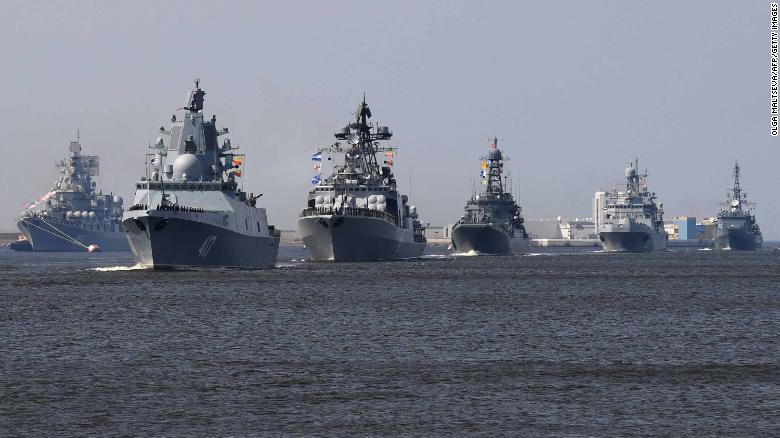- Joined
- Apr 18, 2013
- Messages
- 112,724
- Reaction score
- 103,116
- Location
- Barsoom
- Gender
- Male
- Political Leaning
- Independent
Top US general calls for more troops and warships to counter growing Russian threat

This on the heels of a call by Chief of Naval Operations Adm. John Richardson to confront Russia and China with more "muscular" responses. No US commanders are liking what they see regarding threats from a resurgent Russian military.

3/5/19
The top US general overseeing US military operations in Europe warned of a growing Russian threat Tuesday, saying he is "not comfortable yet with the deterrent posture" of the US military in Europe and its ability to deter Russian aggression, recommending the US deploy more troops and warships to Europe. Gen. Curtis Scaparrotti issued the warning in response to a question from the Chairman of the Senate Armed Services Committee, Oklahoma Republican Sen. James Inhofe, who asked whether European Command has the right posture and capabilities to credibly deter against Russian aggression in Europe. He warned that his command faced shortfalls with regard to land and naval forces as well as intelligence, surveillance and reconnaissance assets. "Of concern is my intelligence, surveillance and reconnaissance capacity given that increasing and growing threat of Russia. I need more ISR," he said. "In light of Russia's modernizing and increasingly aggressive force posture EUCOM recommends augmenting our assigned and rotational forces to enhance our deterrence posture," Scaparrotti said. Scaparrotti, the commander of European Command and the NATO Supreme Allied Commander-Europe, specifically requested two addition naval destroyers to join the four already stationed in Rota, Spain, to help counter Russia. "I've asked for two more destroyers for EUCOM," Scaparrotti told the committee, adding, "we do need greater capacity particularly given the modernization and growth of the fleets -- Russian fleets in Europe."
This on the heels of a call by Chief of Naval Operations Adm. John Richardson to confront Russia and China with more "muscular" responses. No US commanders are liking what they see regarding threats from a resurgent Russian military.

/arc-anglerfish-arc2-prod-mco.s3.amazonaws.com/public/YMYC74QGBJGILLXBTKL4KG7RAY.jpg)